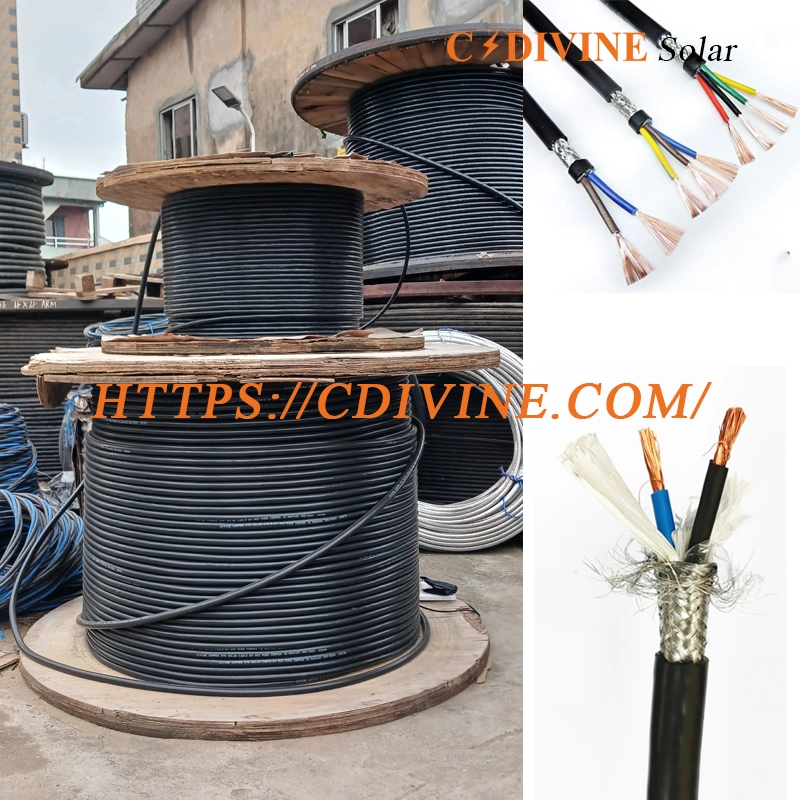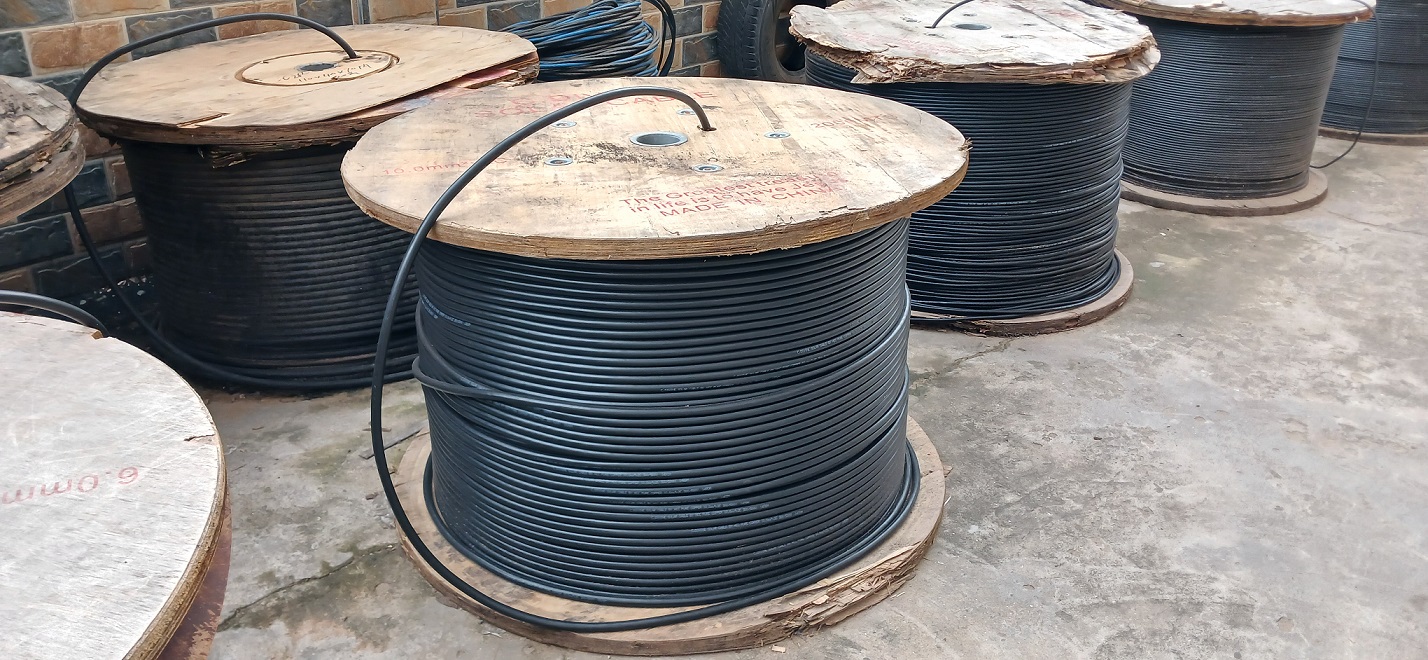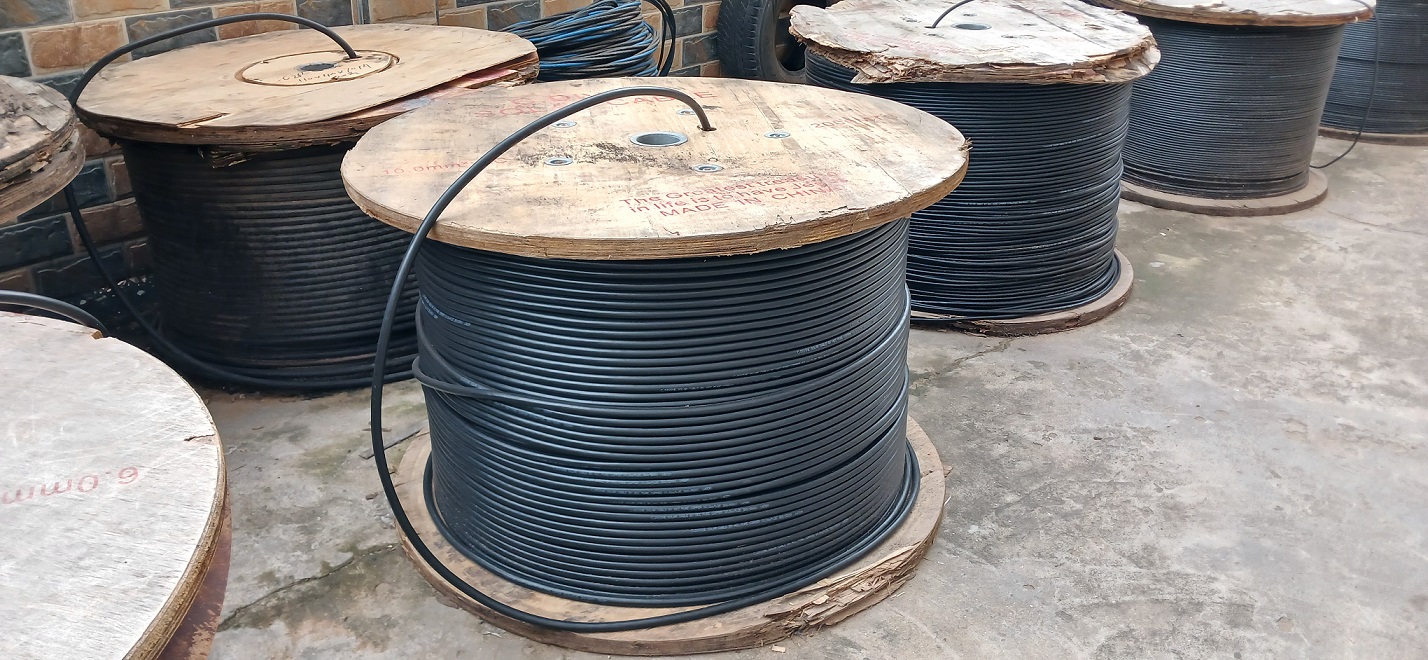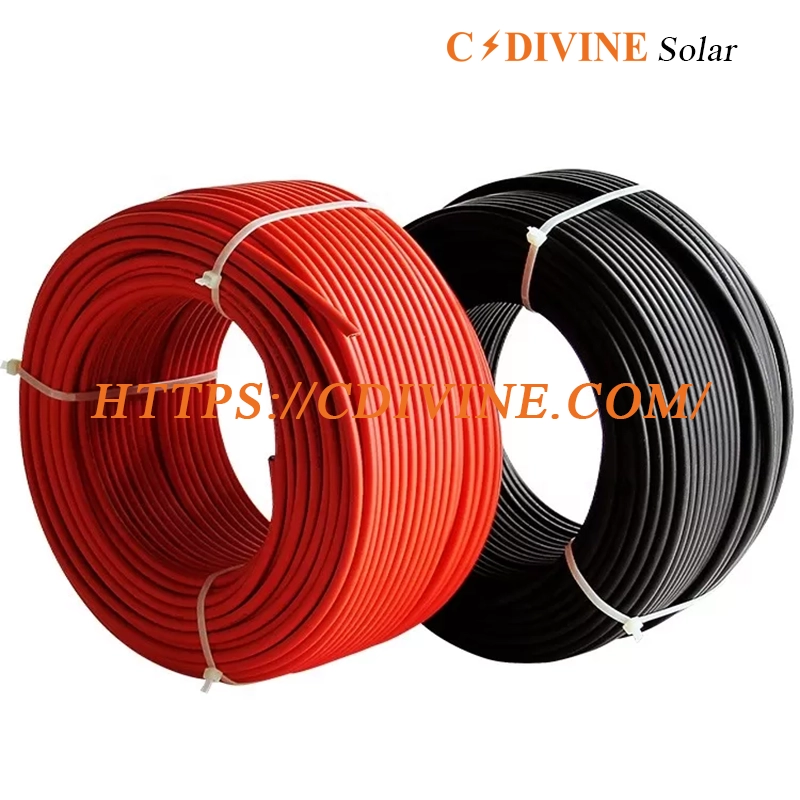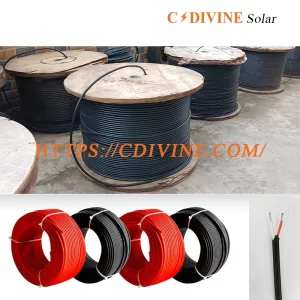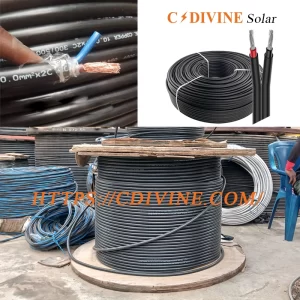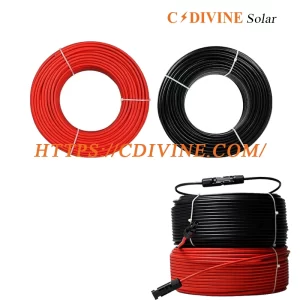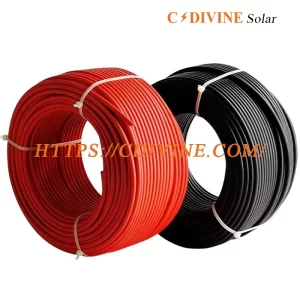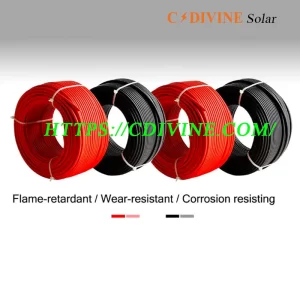C.DIVINE Screen Solar Cable
Quality solar cable with fire resistance and solar panels last for 20/25years, so the quality of the cable can also last more than the panel, and sun can’t melt the cable.
Screened cable, also known as shielded cable, is a type of electrical cable that has an outer layer of conductive material. This layer is used to protect the cable from electromagnetic interference (EMI) and radio frequency interference (RFI) that can be caused by nearby electronic devices.
The outer layer of a screened cable is typically made of a braided wire mesh or a foil wrap. This layer is connected to ground and acts as a barrier against external interference. The inner core of the cable carries the actual electrical signal.
Types of Screened Cable
There are several types of screened cable, including:
| Type | Description |
|---|---|
| Coaxial Cable | A type of cable with a central conductor surrounded by an insulating layer, a braided wire mesh, and an outer insulating layer. |
| Twisted Pair Cable | A type of cable with two insulated conductors that are twisted together, surrounded by a braided wire mesh or foil wrap. |
| Multi-Conductor Cable | A cable with multiple insulated conductors, each surrounded by its own braided wire mesh or foil wrap, and an overall outer layer of braided wire mesh or foil wrap. |
| Instrumentation Cable | A cable with multiple insulated conductors, each surrounded by a separate braided wire mesh or foil wrap. |
Uses of Screened Cable
Screened cable is used in a wide range of applications where electromagnetic interference (EMI) and radio frequency interference (RFI) can cause problems. Some common uses include:
- Audio and video equipment
- Medical equipment
- Military communication systems
- Industrial machinery
- Aerospace and aviation applications
Advantages of Screened Cable
Screened cable offers several advantages over unshielded cable:
- Better protection against electromagnetic interference (EMI) and radio frequency interference (RFI)
- Reduced signal distortion and noise
- Improved signal quality and reliability
- Greater transmission distances
- Increased durability and longevity
Disadvantages of Screened Cable
Despite its benefits, screened cable also has some drawbacks:
- Higher cost compared to unshielded cable
- Increased weight and bulkiness
- More difficult to install and terminate
- Possible ground loops if not installed properly
Conclusion
Overall, screened cable is a reliable and effective solution for protecting against electromagnetic interference (EMI) and radio frequency interference (RFI) in a variety of applications. While it may come with a higher cost and some installation challenges, the benefits of improved signal quality and reliability make it a worthwhile investment for many industries. Whether you are working with audio and video equipment, medical devices, or industrial machinery, screened cable can provide the protection you need to ensure your signals remain clear and consistent.

